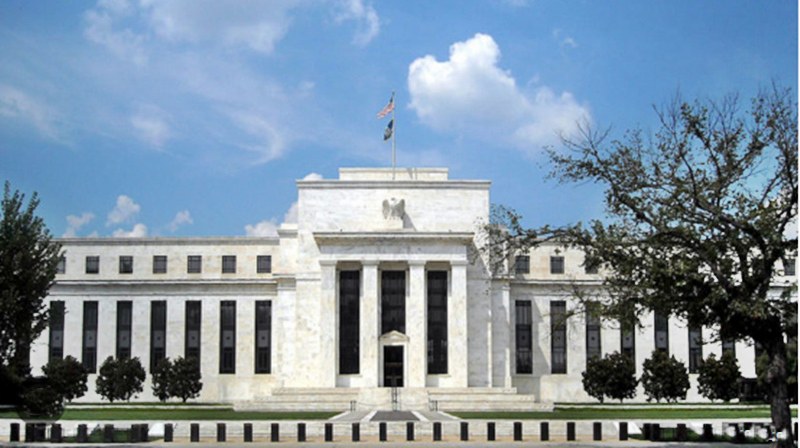Does the president control the Fed?

By YahooFinance-Ivana Pino -January 29, 2025
U.S. presidents don’t have authority over the Fed, but they do have certain powers that can impact the future of the Fed and its decisions.
The president can appoint and fire the Federal Reserve chair
The chair of the Board of Governors of the Federal Reserve System leads the Fed in working toward its key goals, including maximum employment, stable prices, and moderate long-term interest rates. Some of the Fed chair’s responsibilities include reporting to Congress on the Fed's monetary policy objectives, testifying before Congress, and meeting periodically with Treasury Secretary Janet Yellen.
According to the Federal Reserve Act, the chair and vice chair of the board are appointed by the president but must be confirmed by the Senate. Fed chairs and vice chairs serve four-year terms and can be reappointed by the sitting president. They can also be ousted by a sitting president, although this has never happened.
The president can nominate key officials
The president also nominates the seven members of the Board of Governors who serve on the FOMC and oversee the 12 Reserve Banks. Each member is appointed for up to 14 years, which is considered a full term, after which they can’t be reappointed.
“Other than nominations, the president has zero impact on Federal Reserve interest rate policy,” said Scott Fulford, a senior economist at the Consumer Financial Protection Bureau.
The president can discuss monetary policy and voice concerns
Though presidents can’t control interest rates directly, they can discuss their stance on current monetary policy and its impact on rates. But this can be a touchy topic.
“Institutionally, the Federal Reserve is very protective of its independence because that independence helps it achieve its mandate,” Fulford said. “Most presidential administrations go out of their way to avoid even publicly commenting on Fed policy.”
Even so, that hasn’t stopped some politicians from expressing their views on the Fed and its decisions.
"I think I have the right to say I think you should go up or down a little bit. I don't think I should be allowed to order it, but I think I have the right to put in comments as to whether or not the interest rates should go up or down," President Donald Trump said during a Bloomberg News interview at the Chicago Economic Club when he was campaigning.
However, in a speech to the World Economic Forum in January, Trump said he would "demand" lower rates.
Experts maintain that the Fed will continue to make decisions independently. Still, this outside commentary can lead to campaign promises and political actions that impact inflation and consumer prices in other ways, according to Fulford.
“For example, this administration has focused on resolving supply chain problems and reducing monopoly rent-seeking, which reduces inflation,” Fulford said. “Congress could raise taxes or spend less, which would also affect inflation.” He added that there are many policies that affect the broader cost of borrowing as well, such as reducing late fees or closing costs.
Bottom line: The Fed is designed to operate independently of politics, but public statements by the president can shape market expectations and potentially influence the Fed's policy decisions indirectly.
Preparing for the future: How to maximize your savings
Banks and credit unions can adjust their rates at any time at their discretion. You can’t control how rates change, but you can implement smart savings strategies to ride out interest rate fluctuations:
- Consider a high-yield savings account. These savings accounts offer higher interest rates compared to traditional savings accounts. When interest rates fluctuate, you can be sure you’re still earning a competitive rate compared to the market average with a high-yield account.
- Start now. Compound interest helps your savings grow exponentially over time. The earlier you begin saving, the more your balance will grow. Plus, you’ll have a head start if rates fall in the future.
- Shop around. Whether you’re looking to open a new savings account or reevaluate the one you currently have, regularly reviewing the best savings rates available can ensure you’re not missing out on better opportunities.
- Lock in your rate. If you think rates may fall soon, putting your money in a CD allows you to lock in competitive rates for the next several months or even years. Keep in mind that CDs require you to keep your money on deposit until the maturity date, otherwise you’ll be subject to an early withdrawal penalty.
Editor Comments
THE FEDERAL RESERVE TAKEOVER?
A 'dusty legal anomaly' potentially allows a president to influence monetary policy by challenging the Federal Reserve's
This possibility arises because the incoming president, Donald Trump, has previously expressed doubts about the Fed's autonomy.
This suggests a potential move to exert greater control over the Federal Open Market Committee (FOMC), possibly using the legal anomaly as a tool to reshape monetary policy.
This could have significant implications for the economy.
